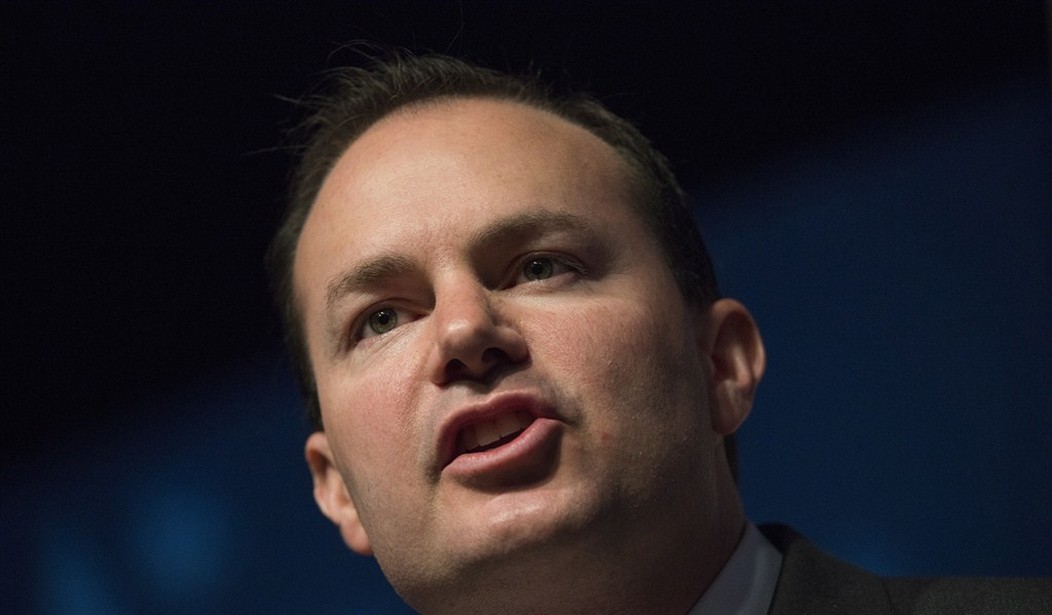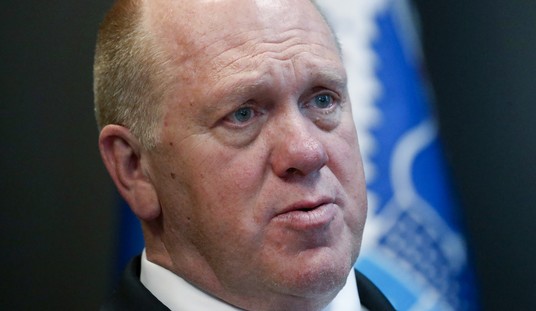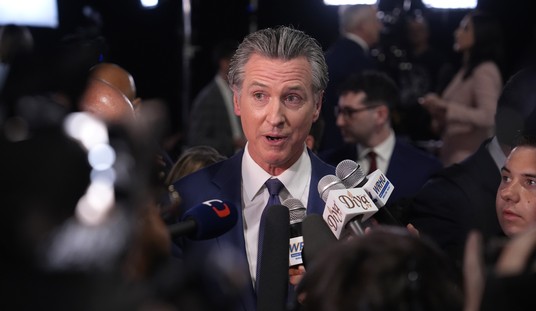[Editor’s note: Gayle Trotter had an opportunity to sit down with Senator Mike Lee about his new book Our Lost Constitution: The Willful Subversion of America’s Founding Document. Here is the entire conversation.]
Gayle Trotter
I am speaking with Senator Mike Lee from Utah. Senator Lee has written an excellent new book entitled Our Lost Constitution: The Willful Subversion of America’s Founding Document. Thank you for joining me, Senator Lee.
Senator Mike Lee
Thank you very much. It's good to be with you.
GT
The first time you and I met was in the hearing room of the Senate Judiciary Committee when I was called to testify about our Bill of Rights. Throughout my adult life, I have studied history and learned about constitutional jurisprudence so I was surprised by how much I learned by reading your book. You reveal in your book how you were first drawn to love the Constitution and strive to protect it. Why did you find a huge Greyhound bus pulling up in front of your family home when you were a kid?
ML
When I was about 11 years old, my dad was the Solicitor General of the United States under the Reagan administration. He had submitted a brief in the U.S. Supreme Court on behalf of the Reagan administration, in a case involving the constitutionality of a local ordinance restricting abortion clinics and the provision of abortions. He argued in that case that the court should give some deference to state and local governments in deciding what does or does not constitute an undue burden on the right declared in Roe v. Wade to an abortion.
This was too much, apparently, for an abortion rights group that decided to protest, not just the decision to file that brief, but to protest in front of my father's home, for that reason.
GT
You write that the Constitution has to be defended by all three branches of the federal government. How would you grade each branch today?
ML
The Constitution is constantly discussed within the courts. It is not to say that the courts always do a good job of doing it, but in so far as the courts are constantly aware of the Constitution, making and addressing constitutional arguments, I think the courts are to be commended in that respect. I would give a much lower grade to the two political branches of the federal government, the executive and the legislative branches, especially because it's become commonplace within these two political branches to punt on questions of constitutionality, in many cases enacting legislation, not withstanding constitutional concerns, and just expecting that any constitutional problems will be worked out by the courts.
GT
What is the Constitution’s origination clause and how does the history of it show how Obamacare should never have been passed by Congress the way it was?
ML
As I explained in my book, the origination clause was worked out as part of the compromise that saves the Constitution at the convention in Philadelphia in 1787. As you recall, there was a conflict between the large states and the small states. Both the large states and the small states had their own unique concerns about how representation would be allocated in Congress, how seats in the Congress would be distributed. Ultimately, even after they were considering the idea of having two houses with one house in which the states would be represented equally and another house in which they'd be represented according to population, they were still unable to achieve agreement. It wasn't until Benjamin Franklin, as I explained in the book, introduced this additional compromise that they were able to get to an agreement. That additional feature was that no taxes could be levied, no tax legislation could be enacted, without that legislation originating in the House of Representatives.
Recommended
You fast forward 225 years or so and you get to the Patient Protection and Affordable Care Act passed in 2010. This is a law also known as Obamacare. It raises taxes in a number of respects and, yet, it did not originate in the House of Representatives. Now, there was a bill filed in the House of Representatives on a completely different subject. It had nothing to do with healthcare and then it was passed in the House and it came over to the Senate. The Senate then passed what's sometimes referred to as a “strip and replace amendment,” stripping all of the text out of that original House bill and replacing it with what we now call Obamacare.
Those tax increases -- Obamacare, together with all of its tax increases -- did not originate in the House of Representatives as contemplated under the origination clause. Had members of Congress been more aware of the origination clause and been willing to stand up for it, Obamacare would not have passed, at least not in the way that it did. It would have saved us from a law that has never enjoyed the approval of a majority of the American people.
GT
You peg the annual cost of Americans’ compliance with federal regulations at $2 trillion dollars. You explain how Congress takes the credit for things like “clean air” but puts the blame for this hidden regulatory cost on executive agencies and their rulemaking. How does this work?
ML
As I explained in my book, I have two stacks of documents in my office. One stack is 11 feet tall. It contains about 80,000 pages. Another stack is just a few inches tall and contains just a few hundred pages. The first stack, the one that's 11 feet tall and contains 80,000 pages, consists of last year's Federal Register. That's the annual cumulative index of federal regulations as they are produced by executive branch bureaucracies and later finalized. This stack towers over the other stack which consists of the laws passed by Congress last year and is just a few hundred pages long, just a few inches tall.
Most of our laws are now made by men and women not of our own choosing. The men and women who work in our executive branch bureaucracies and who write these regulations that impose new rules, new burdens on the American people are well educated, they're well intentioned, they're hard working, but there is one critical feature they do not possess, which members of Congress do possess. That is they're not elected by the people and they don't have the responsibility or the authority under the text of the Constitution to make law. The very first clause of the very first section of the very first article of the Constitution says: All legislative powers herein granted shall be vested in a Congress of the United States, which shall consist of a Senate and House of Representatives, so all legislative powers.
The power to legislate means the power to make law. The power to make law means the power to make rules that are binding on the public and carrying the force of government behind them. This power is not supposed to be just delegated lock, stock, and barrel as it so often is. As I explained in my book, this practice is not one that involves Congress as being the victim. Congress is actually the perpetrator of this. Congress does this voluntarily of its own accord. Congress has relinquished all this authority in order to escape blame. Members of Congress like to be able to take all the credit and receive none of the blame for laws that they put in place. I tell a story in my book about this to frame the issue.
I tell a story about how Alexander Hamilton actually proposed an amendment to the U.S. Constitution. His proposal at the constitutional Convention that would have contemplated a constitutional monarchy went over like a lead balloon, of course. The Founding Fathers rejected this, because they were very, very concerned about the excessive accumulation of power in the hands of the few and I think they'd be very disturbed today to see so much power concentrated within the executive branch of government. They'd be doubly surprised to see that this was done, not contrary to the will of Congress, but with Congress's blessing and, in fact, by Congress's direction.
GT
Any law student would think they know Supreme Court Justice Hugo Black well, as his line of reasoning in seminal First Amendment cases is an important part of any constitutional law class. In your book, you paint the picture of Hugo Black’s background, including his case defending a murderer of a Catholic priest. How did Hugo Black’s background result in a dangerous and ahistorical reading of our First Amendment?
ML
Hugo Black was a member of the Ku Klux Klan, and he was strongly anti-Catholic. He resented the Catholic Church and resented the control and influence that he perceived it had. When Black first arrived at the Supreme Court in 1937, he came to the job with that background and he eventually authored an opinion ten years after he had gotten to the Court in 1947 in a case called Everson v. Board of Education. It challenged the constitutionality of a New Jersey Law allowing school boards to reimburse parents for the cost of their children's transportation to school, including both public and parochial schools.
The only problem for Black was that six of his colleagues on the Supreme Court voted to find the statute constitutional. But he decided to go ahead and vote with the majority and he somehow managed to get the task of writing the opinion assigned to him. What I explain in the book is he then wrote an opinion that while purporting to uphold, and in fact upholding, the statute at issue in that case, sowed the seeds that would be used in later cases to make it easy for the courts to invalidate laws just like that. I believe it had a lot to do with his anti-Catholic views and with his desire to weaken the role of the Catholic Church in the education industry and providing education to the American people.
GT
Who was John Wilkes and why should the intelligence agencies of the Obama Administration be worried if Americans start putting the number 45 on their windows, doors, and cars?
ML
John Wilkes, not to be confused with John Wilkes Booth who was Abraham Lincoln's assassin, was a lawmaker, a Member of Parliament in England in the mid-to-late 18th century. Wilkes was someone who from time to time criticized the King. There were a lot of circulars or political news magazines called “weeklies” at the time in England, and he wrote one that was called The North Briton. In The North Briton, Wilkes would criticize the King. Each of these weeklies was numbered and when he got to number 45 The North Briton, it criticized the King enough that it convinced the King and some of his ministers to go out and arrest John Wilkes. As they arrested him, they subjected him and his household to a very thorough invasive search, one involving the use of a warrant that didn't contain any kind of specificity. It basically just said go out and find a bunch of people who have been involved in criticizing the King in this instance or something like that.
Wilkes, of course, protested that warrant and he ultimately won his freedom and he ultimately won reelection to Parliament after that. Because he stood up to King George III, he became kind of a folk hero throughout England and throughout the English-speaking world, on both sides of the Atlantic. The number 45, because of the stand he took and his response to the charges brought to him as a result of The North Briton number 45, became synonymous not only with the name of John Wilkes, but also with the cause of freedom. They started painting the number 45 on the walls of taverns and saloons in England and in America. People celebrated freedom with the number 45.
It was John Wilkes and his stand against invasive searches and seizures against what are known as general warrants (meaning a search warrant involving an unreasonably broad degree of authority) that helped prompt the Fourth Amendment to the Constitution which includes a particularity requirement in it. The Fourth Amendment to the Constitution says that: “The right of the people to be secure in their persons, houses, papers, and effects, against unreasonable searches and seizures shall not be violated and no warrants shall issue but upon probable cause supported by oath or affirmation, and particularly describing the place to be searched in the persons or things to be seized.” A lot of this was inspired by, or at least given momentum by, John Wilkes.
Today we face some threats to our privacy that I think would have shocked John Wilkes and those champions of freedom who aligned themselves with him. Among other things, I think they would be disturbed to learn that the federal government today collects information on the cell phone usage of millions Americans, the people they call and the people who call them, the time and duration of their calls, going back five years at a time. This kind of information can be very, very dangerous and it's collected in a manner that some have analogized to the use of general warrants.
There is also a risk of this abuse of power within government and that's one of the reasons why I wrote about it in Our Lost Constitution.
GT
The press and the political elite (including some conservative political pundits) relentlessly criticized the effort to defund the unpopular and lawless Obamacare. They claimed that the Democrats would sweep the 2014 midterm elections and they overwhelmingly erred in that prediction. Many lovers of the Constitution found inspiration from those defund efforts, but ultimately we still live under the law that fundamentally altered the relationship between a citizen and her government. Looking back, do you think there is anything you and your Senate colleagues could have done differently to save the people from the ill effects of Obamacare?
ML
Certainly Congress could have, and I still believe should have, refused to fund Obamacare's implementation and enforcement especially in the wake of President Obama's announcement in July of 2013 that he was essentially going to rewrite several provisions of Obamacare. Initially there were four of those provisions at issue that he was going to implement in a way that was tantamount to rewriting them. I predicted at the time that if we went ahead and funded Obamacare's implementation and enforcement in spite of his decision to rewrite those provisions, that the rewriting of law, of this law and other laws, would continue. It happened and he did. He’s rewritten Obamacare dozens of times and he's done some more things in other areas of the law including in the area of immigration.
As I explained in the book, the spending power is the number one protection the American people have against an overreaching executive. I explained that James Madison described the power of the purse as a fundamental one, as a very fundamental protection. I think it's wrong for Congress to be setting up its spending bills, and it has been in recent years, where we have these all or nothing spending packages. We have to either fund all of government or none of government and what I explained at the time is we ought to be doing at least a dozen of these bills. Normally that's how it's supposed to operate under the normal budgeting and appropriations process.
In 2013, that's not how it was working. We're operating on a one-size-fits-all up or down, binary choice, one vote appropriations process, which was wrong. I proposed in that instance at a bare minimum we ought to have two votes. We ought to have at least two votes. One involving funding for Obamacare and one involving funding for everything else, because we ought not be force to fund Obamacare on the basis of the need to make sure that other aspects of government that are non-controversial like national defense, National Parks, the criminal justice system and things like that also need to be funded.
We proposed that Congress have at least two votes and the House of Representatives passed legislation that would have funded everything else in government, even things that Republicans generally don't like. It would have funded everything else in government except Obamacare and then would have allowed us to debate funding for Obamacare separately. The President promised to veto that. Harry Reid, then the majority leader of the Senate, refused even to bring it up.
So President Obama and Senate Democrats shut down the government as a result. They were unwilling to fund anything in government unless they could get everything they wanted. They said this while purporting to be champions of compromise. It was inaccurately reported at the time, and since then, in the sense that the mainstream media and most members of the Washington D.C. political establishment laid the blame at the feet of conservative Republicans in Congress, when, in fact, it was the President's decision that if he couldn't fund everything in government including Obamacare, which he had unconstitutionally rewritten, that he wouldn't allow anything to be funded.
GT
Valuables are passed from one generation to the next, not just family Bibles and wedding dresses, but also enduring principles. You dedicated your book to your father, Rex Lee. What can Americans do to pass the valuable principle, the sacred flame of liberty, to the next generation?
ML
As I explained in the book, it's very important to have conversations with your children, with your family members, your friends, your neighbors, about the Constitution, especially with your children, to talk to them about what protects our liberty. Talk to them about the stories underlying our Constitution and how it came about, how it has worked well over the years, and how it has benefitted us to the degree that we've followed it, and how provisions of it have been lost and need to be restored. That's why I wrote this book and this book provides the stories and the information that one ought to discuss if one is interested in helping to restore these provisions and helping to inform others about the stories and the important features of our Constitution.
GT
Two last questions. My eight-year-old son asked me to ask you “What is the point of your book?”
ML
The point of the book is to tell the story behind the Constitution, to connect it to individuals and to help make it interesting. It's through stories that we make things like that Constitution interesting.
GT
You think one set of things as a citizen, and then you find yourself in the Senate and you learn surprising things. Reflecting on your time in the Senate, what are some of the most surprising things you learned?
ML
A lot of people see the Senate and Congress, in general, as a place where there is just constant bickering and fighting between the parties in part because this is what the news media is most inclined to report on. Now, to be sure, there are a lot of partisan battles and there are issues on which the parties strongly disagree. But it has been encouraging and somewhat surprising to me to see the extent to which there really is a lot of collegiality within the Senate and in the Congress generally. Some of my favorite people in the Senate are Democrats, and I really enjoy working with them. There are a lot of areas of which we're able to find agreement. Like I say, those issues don't get as much attention, but yes, I was encouraged and somewhat surprised to see the extent to which bipartisan relationships not only exist, but abound.
GT
Thank you, Senator Lee, for speaking with me about your important and entertaining book Our Lost Constitution.
ML
Thank you so much.
























Join the conversation as a VIP Member